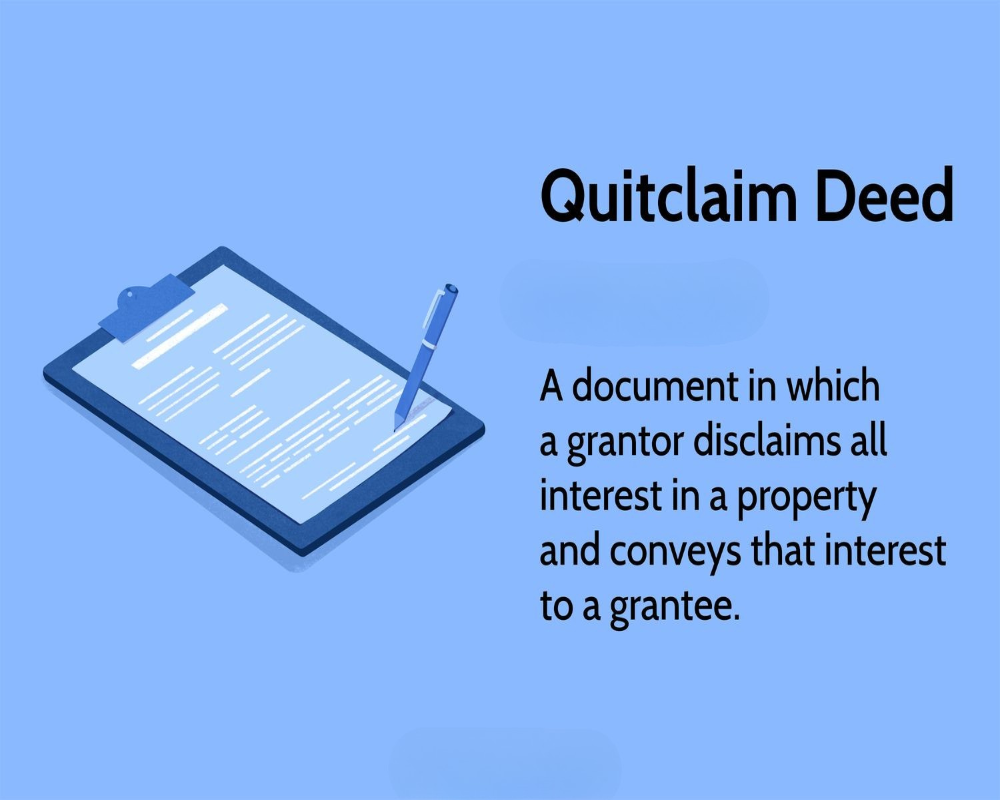Introduction
Quitclaim deeds are a specific type of legal instrument used in real estate transactions to transfer a party’s interest in a property to another party, without providing any guarantees or warranties regarding the quality or validity of the title. In commercial land transfers, quitclaim deeds are less common than warranty deeds, but they serve important functions in particular situations where the focus is on transferring whatever interest exists, rather than assuring a buyer of a clear and marketable title. Understanding the nature, uses, and limitations of quitclaim deeds is essential for anyone involved in commercial property transactions, as their application carries distinct legal and financial implications.
Nature of Quitclaim Deeds
A quitclaim deed simply conveys whatever ownership interest, if any, the grantor (the person transferring the property) holds in the property at the time of the transfer. It makes no promises about the extent of that interest, whether the title is free of defects, or whether other parties might have competing claims. The grantor essentially “quits” any claim they have, passing it to the grantee (the person receiving the property) without any assurance of validity.
Unlike general or special warranty deeds, which affirmatively guarantee that the title is clear of certain encumbrances or defend against future claims, quitclaim deeds offer no such protections. As a result, the grantee accepts the risk that the grantor may not actually have full or uncontested ownership of the property.
Uses of Quitclaim Deeds in Commercial Transactions
In commercial land transfers, quitclaim deeds are typically used in specific, controlled circumstances rather than in open-market transactions. One common use is during internal ownership restructuring, where properties are transferred between related entities—such as from a parent company to a subsidiary, or between business partners. Since the parties already have established relationships and knowledge of the property’s history, the absence of title warranties is less risky.
Quitclaim deeds are also employed to clear title defects or resolve disputes. For example, if a party claims an interest in a property due to a boundary disagreement or an inheritance claim, a quitclaim deed can be used to formally relinquish their potential rights, thus clarifying the title.
Another use is in settlement agreements related to litigation, divorce proceedings, or dissolution of business partnerships, where one party transfers any ownership rights to another without asserting the quality of those rights.
Additionally, quitclaim deeds may be used when transferring property without monetary consideration, such as gifts between corporate affiliates or in cases where nominal value is assigned to a transaction.
Risks and Considerations
Because quitclaim deeds provide no title assurances, they carry higher risk for the grantee compared to other deed types. In commercial transactions, where properties may have significant financial value, reliance on a quitclaim deed without thorough due diligence is generally discouraged. Title searches, surveys, and legal reviews should be conducted to understand the exact nature of the grantor’s interest and to identify any encumbrances, liens, or defects affecting the property.
In most cases, when commercial property is being sold to an unrelated third party, a warranty deed or special warranty deed is preferred, as it offers greater legal protections and enhances marketability. Title insurance is also critical when accepting a quitclaim deed, providing a safeguard against hidden title defects that the deed itself does not address.
Recording and Legal Effect
After a quitclaim deed is executed, it must be properly recorded in the local county recorder’s office to provide public notice of the transfer and protect the grantee’s interest against future claims by third parties. While recording does not validate the quality of the title, it establishes the grantee’s place in the chain of ownership and ensures the transfer is legally recognized.
Conclusion
Quitclaim deeds in commercial land transfers offer a simple, quick method of conveying property interests without making guarantees about the title’s quality. They are best suited for transactions involving low risk, internal transfers, dispute resolution, or title defect clarification. However, because they offer no protection against hidden claims or title defects, they must be used cautiously, accompanied by thorough legal due diligence and, ideally, supported by title insurance. In the complex world of commercial real estate, understanding when and how to properly use quitclaim deeds is crucial for managing risk and ensuring clear, enforceable ownership rights.
Hashtags
#QuitclaimDeeds #CommercialLandTransfers #RealEstateLaw #PropertyTransfer #LandOwnership #RealEstateInvesting #LegalDocuments #PropertyRights #RealEstateTransactions #CommercialRealEstate #DeedTransfer #RealEstateTips #LandUse #PropertyManagement #RealEstateAdvice #LegalAdvice #InvestmentProperty #RealEstateMarket #TitleTransfer #RealEstate101


